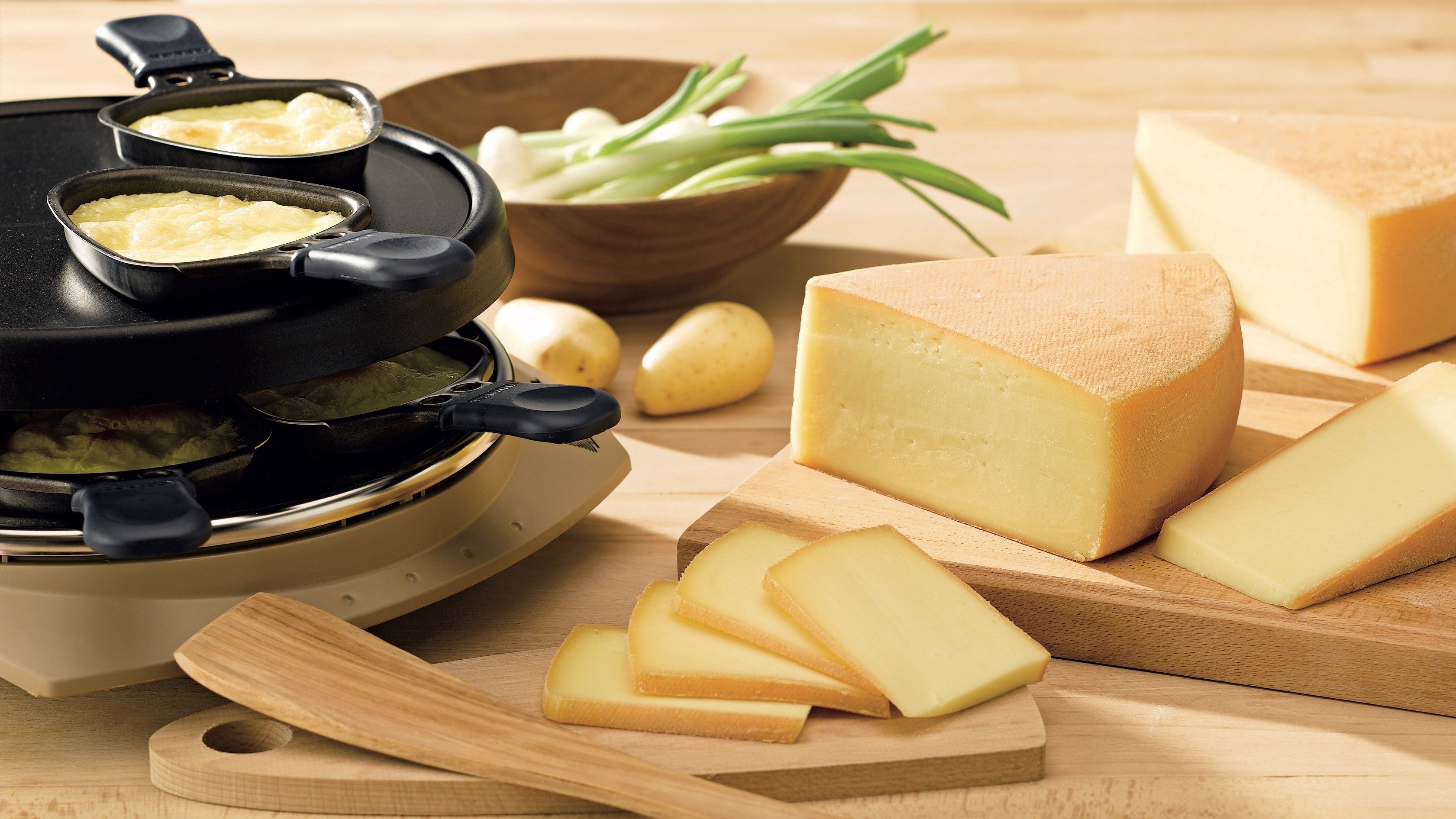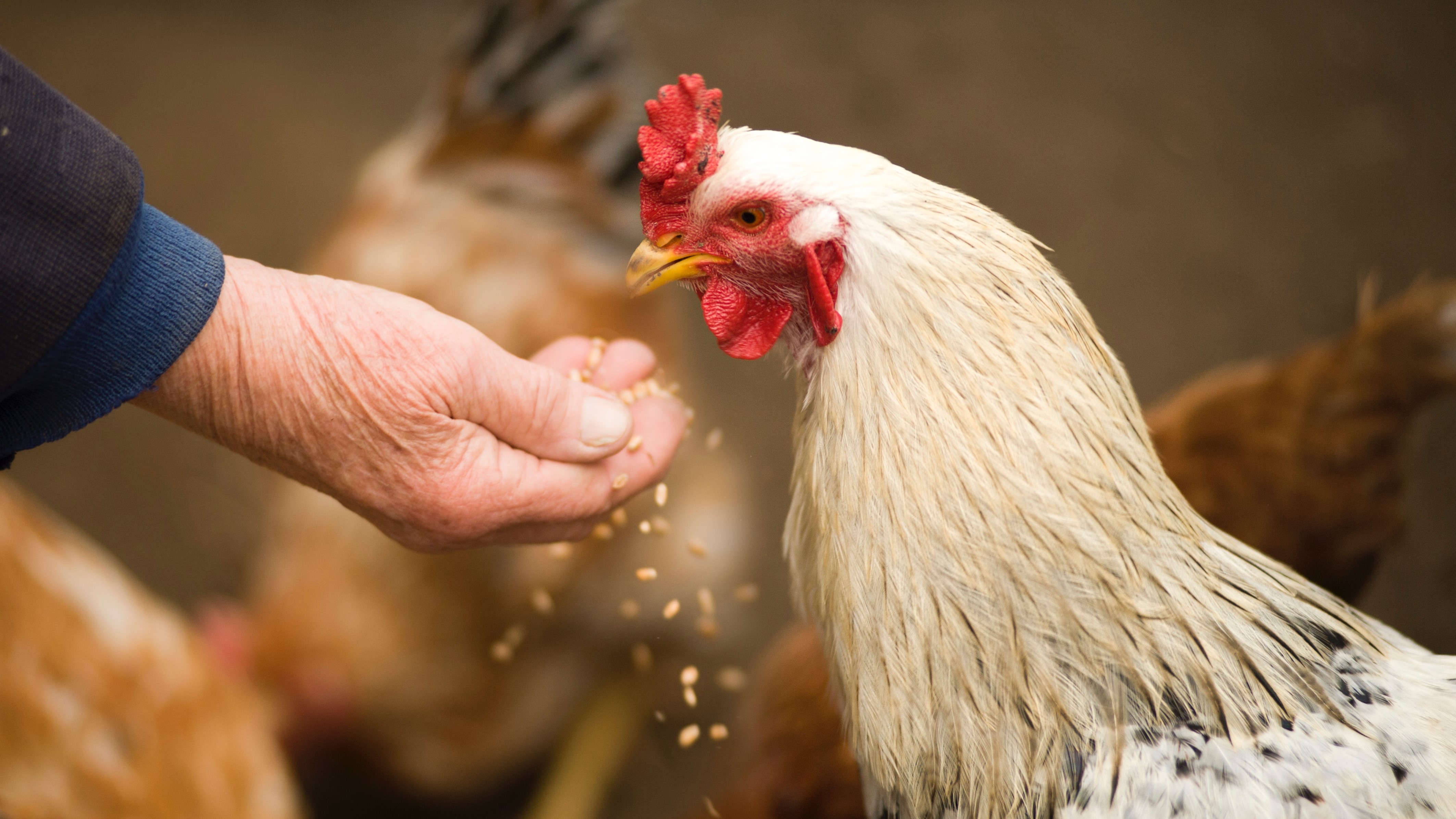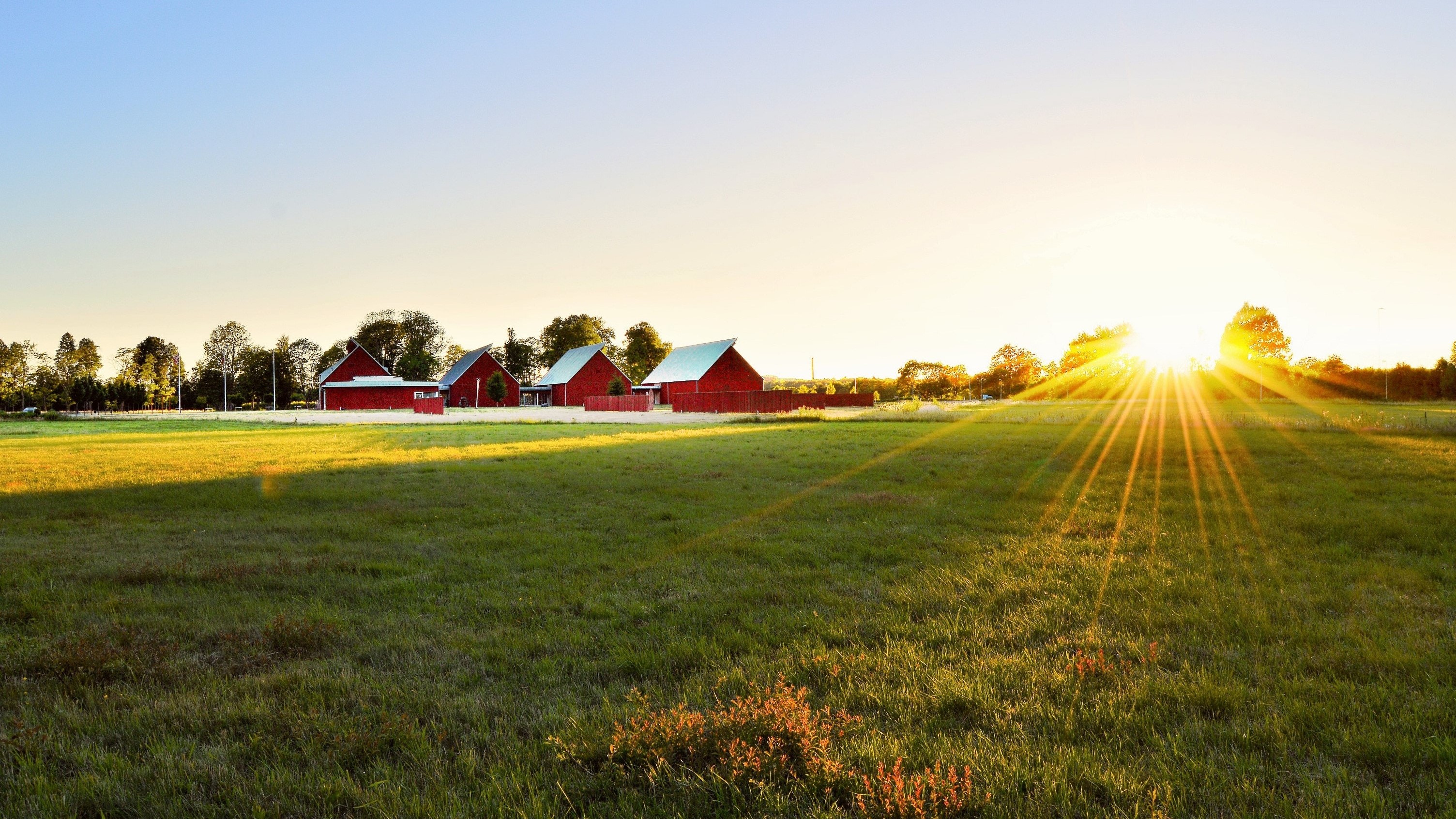April 2023: The Month in Review

Following a mixed end to the year's first quarter, April marked a solid start to the second quarter for the cellular agriculture field. In particular, this month saw new advancements by companies working on developing cell-cultured dairy products via precision fermentation.
At the same time, the month continued to show that it may be a challenging year ahead for the field. From the first regulatory approval in Israel and new governmental support for the field to the shutdown of the first acquired startup, we look at what happened this month in cellular agriculture.
Investments
Zero Cow Factory
At the start of April, new startup Zero Cow Factory raised $4 million in seed funding to produce cell-cultured dairy proteins via precision fermentation. Founded by Parini Kapadia and Sohil Kapadia in 2021, the startup is currently focused on producing cell-cultured casein protein. It aims to be the first company to get regulatory approval for its casein product.
 Zero Cow Factory co-founders Sohil Kapadia and Parini Kapadia
Zero Cow Factory co-founders Sohil Kapadia and Parini Kapadia
Zero Cow Factory plans to use the funding round to accelerate its R&D efforts, scale production, and obtain regulatory approval to enter the Indian market. The company also plans to accelerate building its pilot facility in Gujarat.
Zero Cow Factory’s funding round was co-led by Green Frontier Capital and pi Ventures. Other investors in the funding round include Pascual Innoventures, the venture arm of Spanish dairy company Calidad Pascual.
Wilk
Earlier in April, global dairy company Danone announced it will invest $2 million in Israeli cell-based dairy company Wilk as part of the startup’s larger $3.5 million financing round. As part of the strategic investment, Danone and Wilk will explore opportunities for joint commercial cooperation and operations, including projects in Europe and the US. According to the announcement, Danone will hold at least 2% of Wilk’s capital share.
 Wilk's cell-cultured yogurt containing cell-based milk fats
Wilk's cell-cultured yogurt containing cell-based milk fats
Wilk aims to develop cell-cultured fat to contribute to the infant formula category with nutritionally superior and cost-comparable formula. In November 2022, Wilk announced that it had developed the first yogurt product made with its cell-based milk fat and traditional animal dairy components. Other investors in the funding round include cell-based meat company Steakholder Foods and The Central Bottling Company.
Imagindairy
Global dairy company Danone also announced an investment in Israeli precision fermentation (acellular agriculture) dairy company Imagindairy through its venture arm, Danone Manifesto Ventures. According to the announcement, the investment gives Danone a minority stake in the startup and is part of a broader partnership for the companies to develop cell-cultured dairy products.
 Imagindairy co-founders Professor Tamir Tuller, Eyal Afergan, Dr. Arie Abo
Imagindairy co-founders Professor Tamir Tuller, Eyal Afergan, Dr. Arie Abo
While the investment was undisclosed, Imagindairy previously raised $15 million in a seed extension funding round in May 2022, following its $13 million seed round in November 2021. Danone’s investment follows its earlier announcement in April that Danone also invested $2 million in Israeli cell-based dairy company Wilk.
Steakholder Foods Shuts Down Peace of Meat
At the start of April, Israeli cell-based meat company Steakholder Foods announced the closure of its subsidiary, Peace of Meat, to focus on commercializing its 3D-printing technology platform.
Based in Belgium, Peace of Meat was acquired by Steakholder Foods (previously MeaTech 3D) for €15 million in 2020 as the first-ever acquisition in the cell-based meat industry.
According to the announcement, Steakholder Foods shared that the terms of the acquisition granted Peace of Meat autonomy to operate independently for two years in 2021 and 2022. During this period, in March 2022, Steakholder Foods presented plans to construct a pilot plant for Peace of Meat.
In addition, in May 2022, the company also partnered with mycoprotein company Enough Food to develop hybrid meat products combining Peace of Meat’s cell-cultured avian fat with Enough Food’s fungi-derived mycoprotein.
 Steakholder Foods previously planned to construct a pilot plant in Belgium for Peace of Meat
Steakholder Foods previously planned to construct a pilot plant in Belgium for Peace of Meat
After this period, Steakholder Foods decided not to fund Peace of Meat and to concentrate on its cell-based meat 3D-printing technology. Steakholder Foods previously planned to restructure Peace of Meat to focus on filing its regulatory submission in Singapore by the end of 2023.
It is unclear whether Steakholder Foods will continue to develop Peace of Meat’s cell-cultured avian fat products internally. After Peace of Meat’s assets are liquidated, Steakholder Foods will consider how and when to continue the development of its cell-cultured avian products.
In March, New Age Eats shut down in the US after failing to raise more funding to complete its pilot facility. As Peace of Meat closes, it will be important to ensure that the company supports previous employees during this period.
Remilk Receives Regulatory Approval in Israel for Cell-Cultured Dairy Proteins
Cellular agriculture dairy company Remilk announced that it received regulatory approval to launch its cell-cultured dairy protein products in Israel.
Based in Israel, Remilk produces its cell-cultured whey proteins via precision fermentation (also known as acellular agriculture). By designing microorganisms to produce the same dairy proteins found in cow’s milk, Remilk aims to make the same dairy products more sustainable.
 Remilk's cell-cultured dairy product via precision fermentation
Remilk's cell-cultured dairy product via precision fermentation
Following the review by the Israeli Ministry of Health, Remilk became the first cellular agriculture food company to receive regulatory approval in the country. The company previously received regulatory approval to launch its dairy products in Singapore in February 2023.
At the same time as the Singapore approval, Remilk received a letter of no objections or questions from the FDA in the US about its cell-cultured whey protein product. Remilk previously received its self-affirmed GRAS (Generally Recognized as Safe) status for its dairy proteins in June 2022.
At the time of the announcement, Remilk did not share a timeline on when the company plans to launch its cell-cultured dairy protein products in Israel. In July 2022, Remilk announced a commercial partnership with the Central Bottling Company to launch a line of dairy products with Remilk’s dairy proteins for the Israeli market within 12 months, pending regulatory approval.
Interestingly, even though Remilk has received regulatory approval in three different countries, the company has yet to announce a product launch in any of them. In January 2023, food corporate General Mills announced that it would expand its cell-cultured dairy Bold Cultr cream cheese product in partnership with Remilk in the US before deciding to discontinue the brand.
In February, Remilk became one of the founding members of the newly launched Precision Fermentation Alliance. At the same time, Remilk also halted its plans to build its first fully-owned facility in Kalundborg, Denmark, to work with an unnamed CMO to produce its whey protein.
FAO and WHO publish Global Report on Food Safety of Cell-based Food Products
At the start of April, the Food and Agriculture Organization of the United Nations (FAO), in collaboration with the World Health Organization (WHO), published the first global report looking at the food safety aspects of cell-based food products, specifically cell-based meat.
Called the 'Food Safety Aspects of Cell-based Food,'' the report results from an FAO-led consultation with experts and stakeholders in Singapore in November 2022. The report aims to identify potential food safety hazards for cell-based meat during its production process. Hazard identification is the first step of a formal risk assessment process.
The report is divided into several sections, covering terminology, the principles of cell-based meat production, case studies of regulatory frameworks from different regions, and hazard identification. The specific case studies in the report are Israel, Qatar, and Singapore.

While the report identified potential hazards through the cell-based meat production process, the experts agreed that many hazards are already well known and exist equally in conventionally produced food. At the same time, the report noted that stakeholders should put a safety focus on materials, inputs, and equipment unique to the cell-based food field.
Considering that some of the first questions people have about cell-based meat are its safety profile and regulation, it is promising to see the FAO and WHO identify key food safety hazards for national regulators to consider when developing their regulatory frameworks.
Interestingly, FAO notes that people may be skeptical or concerned about food safety statements once novel food tech products are on the market. Therefore, FAO called for companies in the field to start engaging with all stakeholders, especially consumers, beforehand to address all their food safety concerns.
In 2020, Singapore became the first country in the world to give regulatory approval for the sale of cell-cultured chicken meat to Good Meat, a subsidiary of Eat Just.
The UK Launches £12 Million Cellular Agriculture Research Hub
The UK government announced an investment of £12 million ($14.9 million) to launch a new research center called the Cellular Agriculture Manufacturing Hub (CARMA).
According to the announcement, the new research center will run for seven years. It will initially focus on scaling and producing tissue-engineered cell-based meat and cell-cultured palm oil produced through precision fermentation (also known as acellular agriculture).

The largest investment made to date by the UK government in sustainable proteins, CARMA will be primarily funded by the Engineering and Physical Sciences Research Council (EPSRC), part of the UK Research and Innovation (UKRI).
The research hub will be led by Professor Marianne Ellis from the University of Bath, who is also the co-founder of the bioprocessing startup Cellular Agriculture Ltd. Experts from other universities will also be part of the research hub, including the University of Birmingham and the Royal Agricultural University.
Along with researchers, cellular agriculture startups, such as Hoxton Farms and Quest Meat, will support the research hub. The startup Clean Food Group previously announced a partnership with the University of Bath to conduct research on cell-cultured palm oil in August 2022.
Liberation Labs receives $30 million in Equipment Financing
Bioprocessing startup Liberation Labs secured $30 million in equipment financing to advance the development of its first commercial-scale facility in Richmond, Indiana, with 600,000 liters in fermentation capacity. Liberation Labs plans to use the additional loan financing to secure the equipment needed and expand its engineering and operation teams.
Specifically, the company has placed orders for major engineered equipment, including its 150,000-liter fermenters and downstream processing separation and drying units. The startup expects its facility groundbreaking in June 2023, with an initial plant startup by the end of 2024. Liberation Labs raised $20 million in seed funding in December 2022.
 Liberation Labs proposed commercial-scale precision fermentation facility
Liberation Labs proposed commercial-scale precision fermentation facility
Believer Meats Partners with ADM to enhance its Production Process
Cell-based meat company Believer Meats announced a partnership with global food and feed ingredients supplier Archer Daniels Midland (ADM) to advance the development and commercialization of its products.
According to the non-exclusive memorandum of understanding, ADM will provide its expertise in nutrients and ingredients to enhance Believer Meats’ cell-based meat production process. The agreement also explores the potential for ADM to use its processing expertise and distribution channels to commercialize cell-cultured meat products.
 Believer Meats' cell-cultured chicken
Believer Meats' cell-cultured chicken
ADM Ventures, the company's venture arm, previously co-led Believer Meats’ massive Series B funding round of $347 million in December 2021.
In May 2022, ADM announced a joint development agreement with Eat Just to help Good Meat create an optimized cell culture growth media and improve the taste and texture of its cell-cultured meat products. In addition, through its venture arm, ADM invested in New Culture’s $25 million Series A funding round in November 2021.
Aleph Farms Presents First Product Brand, Aleph Cuts
Cell-based meat company Aleph Farms recently announced the launch of its first product brand, Aleph Cuts. The new brand features Aleph Farms’ flagship product, the Petit Steak, the world’s first cell-based steak. Pending regulatory approval, the company plans to launch it in Singapore and Israel later this year.
Aleph Farms partnered with brand and experience design agency BOND to develop the Aleph Cuts brand to build momentum ahead of its commercial launch. In February, Aleph Farms announced a new facility acquisition and partnership with Esco Aster to help the Israeli company scale and launch its cell-based beef steaks in Israel and Singapore, respectively.
 Aleph Farms showcased its first product brand, Aleph Cuts
Aleph Farms showcased its first product brand, Aleph Cuts
Steakholder Foods showcased 3D-printed Cultured Fish Fillet
Steakholder Foods announced producing the first 3D-printed cell-cultured fish fillet. The cell-cultured grouper fish product was made using bio-inks from a grouper cell line provided by Singaporean startup Umami Meats. By customizing its bio-inks to an external cell line, Steakholder Foods aims to explore collaborations along the path to commercialization.
Steakholder Foods and Umami Meats first announced their partnership in July 2022, with the aim to produce a structured hybrid grouper product. The companies then received a grant of up to $1 million from the Singapore-Israel Industrial R&D Foundation to create a 3D-printed seafood product in January 2023.
 Cell-cultured fish fillet by Steakholder Foods
Cell-cultured fish fillet by Steakholder Foods
Upside Foods Showcases New Cultivated Chicken Product Prototypes
Cell-based meat company Upside Foods announced the development of new cell-based chicken ground meat products. From cell-based chicken sausages to chicken sandwiches and dumplings, the latest products will be added to Upside Foods’ commercial portfolio pending regulatory review. The new ground meat products will be cell-based chicken cells blended with plant-based protein components.
In addition, Upside Foods announced the development of a chicken cell line that eliminates the need for platelet-derived growth factors (PDGFs). As one of the most expensive components of the cell culture media, the removal will support the company’s efforts to scale its production process. In November 2022, Upside Foods became the first company to receive a letter of no questions from the US FDA for the safety of its cell-cultured chicken filet product.
 Upside Foods' cell-cultivated chicken
Upside Foods' cell-cultivated chicken
Perfect Day’s Coolhaus Launches in Hong Kong
Ice cream brand Coolhaus launched its cell-cultured ice cream products in Hong Kong. The animal-free ice cream products use Perfect Day’s cell-cultured dairy proteins. The expansion to Hong Kong follows the launch of Coolhaus ice cream in Singapore in August 2022. Interestingly, this is not Perfect Day's first cell-cultured dairy product launch in Hong Kong. The company partnered with Igloo Dessert Bar to launch its first cell-cultured dairy ice cream product in Hong Kong in January 2021. Perfect Day acquired Coolhaus in December 2021 through its subsidiary, The Urgent Company.
 Coolhaus ice cream featuring Perfect Day's cell-cultured dairy proteins
Coolhaus ice cream featuring Perfect Day's cell-cultured dairy proteins
Cult Food Science Announces Plans to Enter Pet Food Field
At the end of March, investment platform Cult Food Science signed a letter of intent to acquire cell-cultured pet food company Because Animals’ plant-based pet food product lines. According to the announcement, the acquisition will support Cult Food Science’s initiative to develop pet food brands as part of the company’s new pet food division. The acquired plant-based food assets include Because Animals’ Noochies! nutritional yeast pet food brand.
At the same time as the announcement, the company Because Animals clarified that Cult Food Science acquired neither the startup nor its brand. Instead, Cult Food Science acquired the intellectual property of its discontinued plant-based pet food product line through Because Animals’ co-founder Joshua Errett, who joined Cult Food Science in 2022. Because Animals plans to continue developing cell-based meat products for the pet food industry.

Cult Food Science announced two new pet food product lines: Indiana Pet Foods and Marina Cat. India Pet Foods will be a cell-based dog food and treat brand with cell-based collagen for active and senior dogs. Cult Food Science claims collagen shows benefits to dogs with osteoarthritis. In addition, Marina Cat will be a modern treat brand for cats using cell-based fish and marine ingredients.
Having previously launched its food division Cult Foods in January 2023, the new product lines by Cult Food Science highlight how the investment platform seeks to integrate its portfolio companies’ products into pet foods. To support that goal, Cult Food Science partnered with Jellatech for its cell-based collagen and Umami Meats to supply cell-cultured red snapper for its Indiana Pet Food and Marina Cat brands, respectively.
Cult Food Science did not announce a date on when the cell-based pet food product lines would be available. At the same time, Cult Food Science announced that the newly acquired Noochies! brand will be available for sale in the US from the third quarter of 2023, including pet foods, snacks, and supplements.
The Cultivated B aims to support Scaling Bioreactor Development
A critical part of scaling cell-based meat production is developing large-scale bioreactors through which companies can increase their production capacities. The Cultivated B (TCB) aims to support the scaling of the field by producing its own bioreactor systems. TCB intends to make and sell its bioreactors and various services for both cell-cultured meat and precision fermentation production. Launching in late 2023, TCB’s range of bioreactors goes up to 1,000L. In October 2022, TCB announced a partnership with Ontario Genomics to support the cellular agriculture field in Canada.
Myodenovo Launches to Develop Cell-based Filet Mignon Steaks
Myodenovo, a new US-based startup, recently emerged from stealth. The company, founded by Dr. George Engelmayr, aims to support the "next step in the evolution” of cell-based meat by producing whole cuts, such as a cell-based filet mignon steak.
 Myodenovo's cell-based filet mignon steak prototype
Myodenovo's cell-based filet mignon steak prototype
Myodenovo has raised an undisclosed funding round, including from Sustainable Food Ventures, and is now seeking $2 million in pre-seed funding to support 18 months of runway. Before launching Myodenovo at the end of 2022, Engelmayr previously worked with Upside Foods and Mission Barns. The company ambitiously aims to file its first FDA submission by the second quarter of 2024.
Cellular Agriculture meets Fashion in Singapore
Cell-based leather group ProjectEx was awarded the Vogue Singapore Innovation Prize for aiming to create exotic cell-based leather to make fashion more sustainable. The project is co-founded by Adrian Furstenberg and Dr. Viknish Krishnan-Kutty, the co-founder of Cellivate Technologies, a bioprocessing startup working to increase production yields for cell-based meat production through its cell coating and microcarrier solutions.
Agri-Tech writes to Congress to Assess Financing Gap
A coalition of thirty agri-tech companies and players wrote a letter to the Senate and House Appropriations Subcommittees on Agriculture. The letter encourages Congress to direct the USDA to assess the financing gap that hinders emerging agricultural innovations, technologies, and industries in the Fiscal year 2024 spending bill.
The letter requests the USDA identify the sectors and technologies suitable for federal financing support. Cellular agriculture companies and players that signed the letter include Biomilq, Eat Just, Finless Foods, New Harvest, and the Good Food Institute.
Conclusion

From a new regulatory approval to the first global report evaluating cell-based meat safety, April 2023 was a big start to the second quarter, particularly for the precision fermentation field. At the same time, with another company shutdown (albeit an acquired subsidiary) and layoffs, the field will continue to face its challenges moving forward.
In a month with a handful of funding announcements, it was notable to see major dairy company Danone invest in both a cell-based dairy and precision fermentation dairy player. Considering that Danone has been a leader in plant-based dairy alternatives, the investments likely signal the corporation’s interest in the cellular agriculture field.
At the same time, Steakholder Foods shutting down Peace of Meats highlights the challenges and tough decisions companies will have to make moving forward. With a slowing global food investment landscape, companies will need to continue achieving significant milestones to continue raising capital to scale.
In addition, considering that it was in London a decade ago, in 2013, when Dr. Mark Post showcased the world’s first cell-grown beef burger, it is promising to see the UK government take the initiative to develop a cellular agriculture research hub that could position the country as a global hub for the field.
As many academics and startups in the UK work towards scaling up cell-based meat production, CARMA can provide access to the resources required to support them in addressing the critical technical and viability challenges associated with building the field’s supply chain.
The UK government’s initiative follows the Italian government’s recent bill to ban cell-based meat products. In April 2022, the Dutch government announced €60 million ($65.4 million) in public funding to support the formation of a cellular agriculture ecosystem in the Netherlands.
Stay connected with CellAgri
Join our mailing list to receive the latest news and updates weekly from the cellular agriculture industry. Your information will not be shared.



